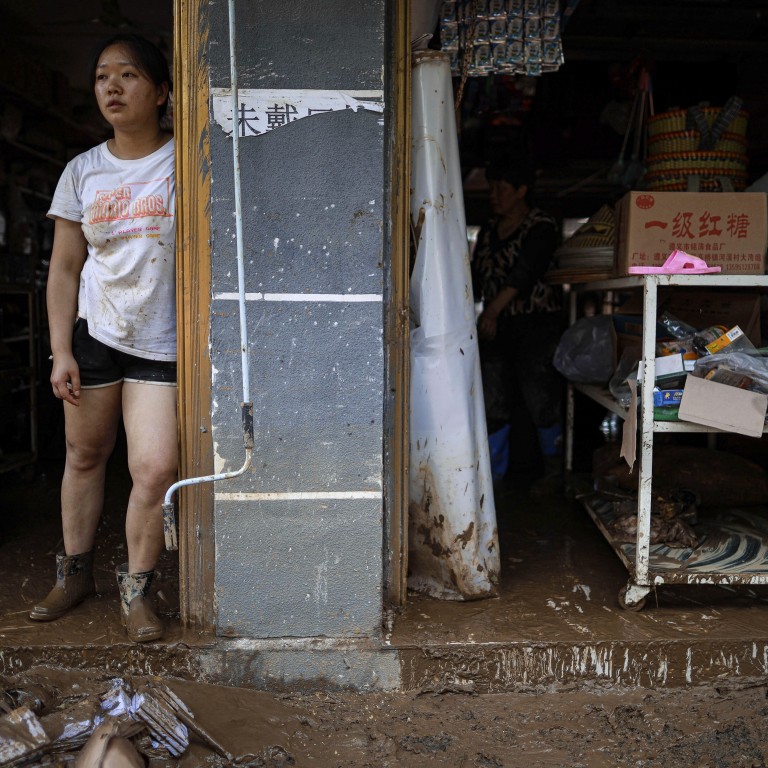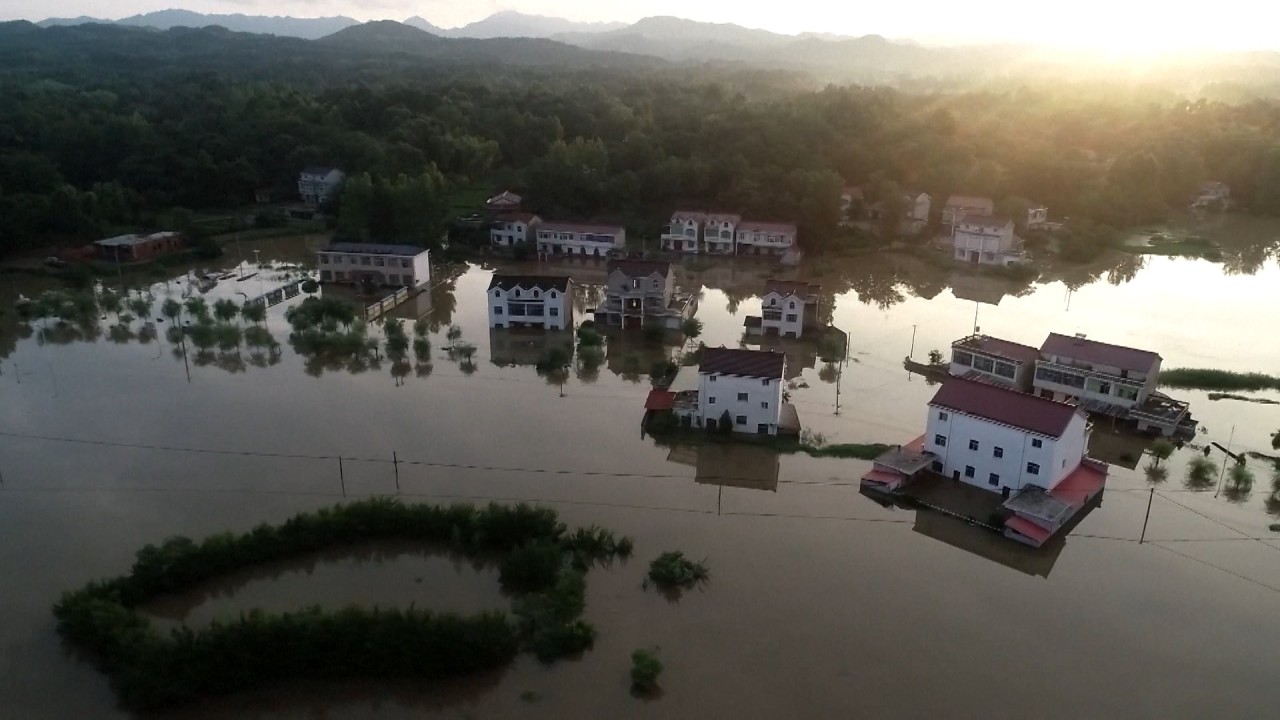
China on higher alert as floods hit – and climate change promises more extreme weather
- Millions have been affected by heavy downpours in the last few weeks, particularly in the south of the country
- Environmentalists say these events could become the new normal
The flood alarm in the middle and lower reaches of the Yangtze River was raised from level four to three on Saturday, with authorities warning of further downpours, Communist Party mouthpiece People’s Daily reported on its social media account.
The Ministry of Emergency Management said that as of last Sunday, more than 12 million people from 13 provinces had been affected by heavy rain since early June, with at least 78 people dead or missing and 729,000 residents forced to flee their homes. Economic losses were estimated at 25.7 billion yuan (US$3.63 billion), the ministry said.

And more is thought to be on the way, according to weather forecasters.
The rain is expected to affect summer crops in an agricultural sector still trying to recover from the coronavirus pandemic.
But officials have expressed confidence in containing the damage, pointing to major flood control improvements in along major rivers such as the Yangtze.
“There are now 40 reservoirs including the Three Gorges Dam that can help adjust the water flow and floods and together they are capable of handling as much as 57.4 billion cubic metres of water,” Changjiang Water Resources Commission official Ning Lei was quoted by state news agency Xinhua as saying.
“These facilities are our most powerful, cost-effective and dynamic weapons to prevent flooding.”
Chinese coast braces for flooding as storms move east
Yang Fuqiang, a senior adviser on climate change and energy policy of the Natural Resources Defence Council in Beijing, said China was expected to confront more extreme rainfall in the years to come.
“We are now seeing a trend that there will be more frequent intense floodings and extreme rainfall will happen unevenly over large areas,” Yang said.
Greenpeace said that such extreme weather would become the new normal.
From 1961 to 2018, there was an increase in “extremely heavy rainfall” incidents in China, according to the China Climate Change Blue Book (2019). Since the mid-1990s, the frequency of extreme rainfall has increased dramatically.
The book added that from 1951 to 2018, the annual average temperature in China had increased by 0.24 Celsius degrees every 10 years – a much faster rate than the global average level in the same period.

02:16
Deadly floods and torrential rain in China affect over 8.5 million people
The average monthly rainfall throughout the country so far this year is 292mm, a 7 per cent increase compared with previous years, according to the Ministry of Water Resources.
More than 500mm has fallen since June in some areas, including most parts of Guangxi, and the central and eastern regions of Guangdong province. In some regions 800mm had been reported, it added. By comparison, Beijing reported 500mm for all of last year.
Yang said the effect of climate change differed from area to area.
“It will lead to extreme rainfall in southern China but severe droughts in northern China, while drought-prone northwestern China will become moist and the weather in northeastern China will become warm,” he said.
“It will have a negative impact on China’s grain production.”
Zou Ji, president of Energy Foundation China, said climate change had clearly led to more frequent extreme weather around the world.
“It should serve as a reminder that we need to build early warning systems so as to reduce losses,” Zou said.

